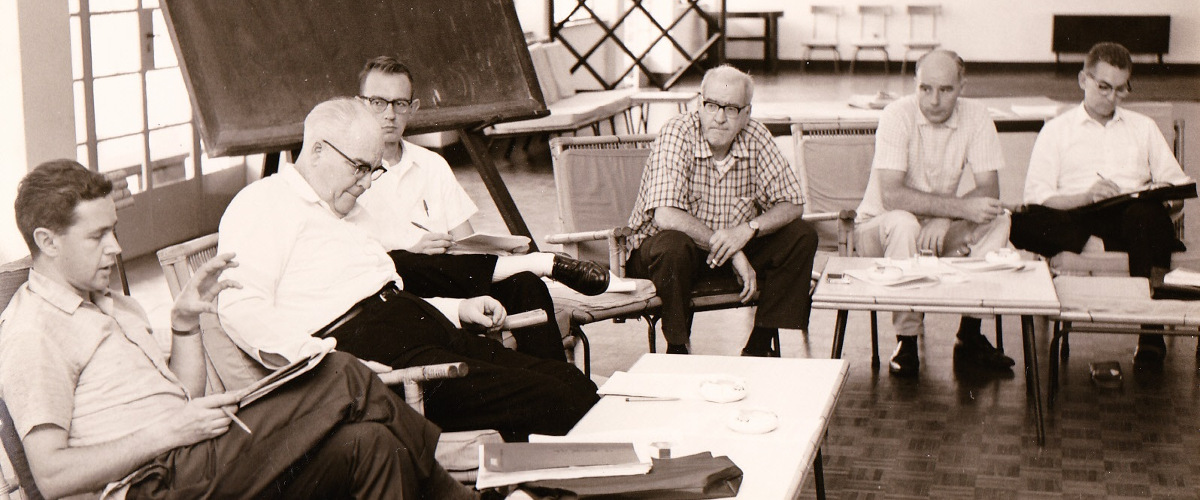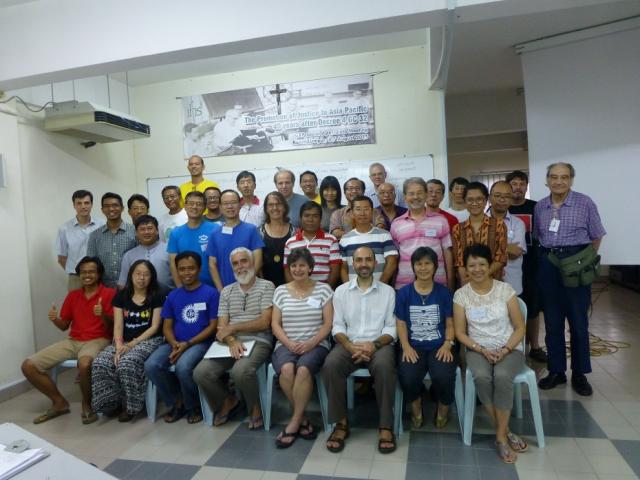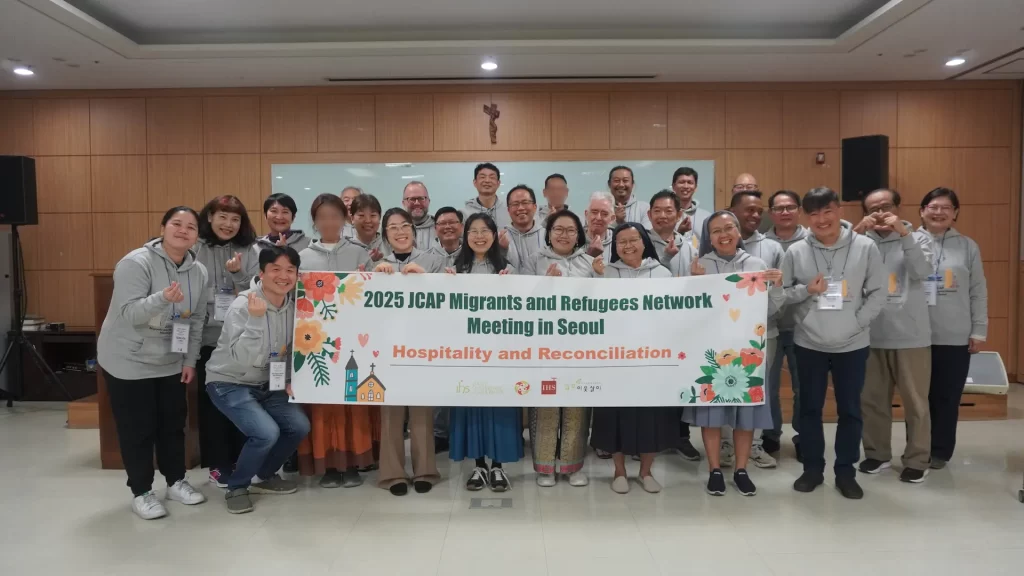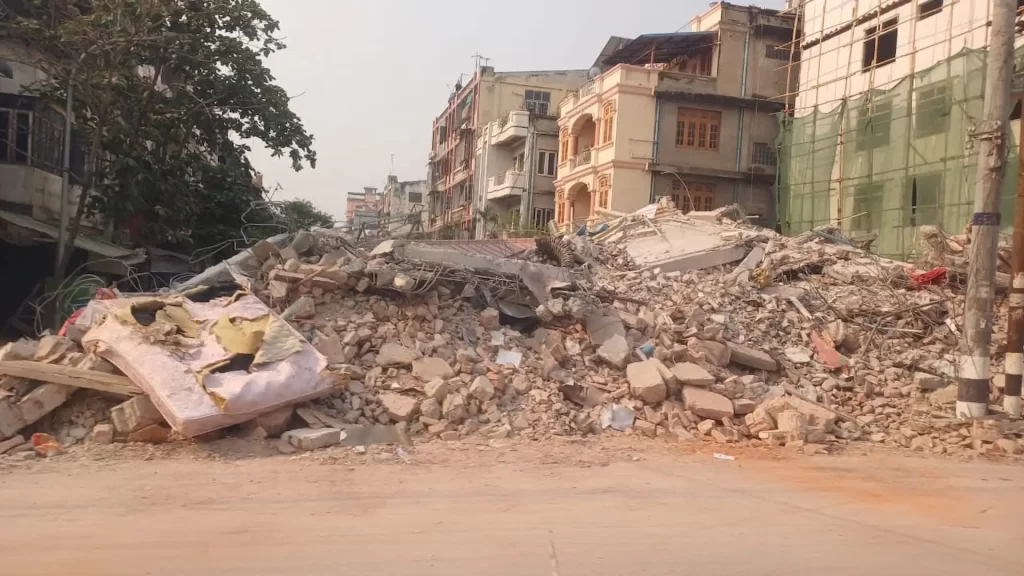A black and white photograph caught the eye on entering the meeting room for this year’s Social Apostolate meeting in Kuala Lumpur. It showed six men, all Jesuits and all Caucasian, deep in thought. The photograph was taken sometime in 1971 when the Committee for the Development of Socio-Economic Life in Asia (SELA), the predecessor of the Jesuit Conference of Asia Pacific social apostolate office, had a meeting. One of those men, Fr Ando Isamu SJ, was also in the KL meeting held from August 3 to 7, 2015, connecting the participants to the foundations of the Jesuit social apostolate in Asia Pacific.
This year is the 40th anniversary of the seminal Decree 4 of the 32nd General Congregation, which prompted an outpouring of social action among Jesuits and lay collaborators against the oppression and poverty that engulfed much of Asia Pacific at that time. Asia Pacific is a very different place now, although structures of injustice remain in various forms. The call to live a faith that does justice, therefore, still rings true. How have we responded to the call? What kind of injustices are people now suffering? And how do we want to work for justice in Asia Pacific today?
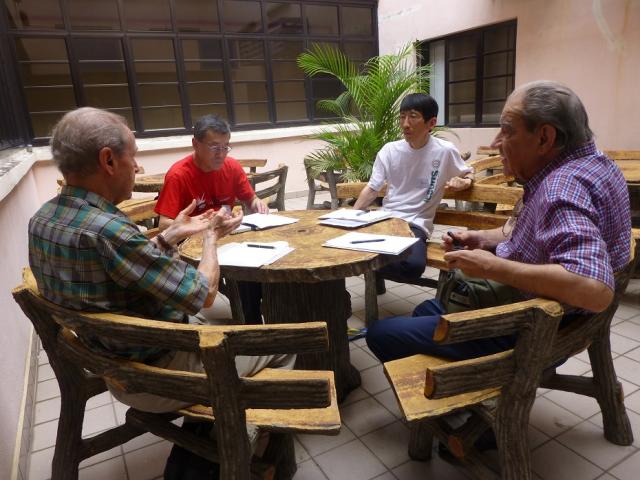
Stage two laid out the challenges that Asia Pacific is facing today. In Southeast Asia, the ASEAN Economic Community presents a promise of greater prosperity but also threatens to marginalise the poor who will struggle to join the new regional market economy. In Northeast Asia, peace is being threathened by increasing militarisation. Fr Park Mun-su SJ described how the perceived threat from the emerging China combined with experiences of past wars and conflicts fuel the pursuit of national security, which ironically makes everyone less secure. Jesuits in Japan and Korea have joined hands to counter this phenomenon. These challenges were framed in an exercise to do social analysis that puts the question of poverty and inequality at the centre.
The third day was spent visiting civil society groups that are at the frontline of the struggle for justice in Malaysia: Suaram (Suara Rakyat Malaysia or the Voice of the People of Malaysia), Bersih or the Coalition for Clean and Fair Elections, Sisters in Islam, Islamic Renaissance Front, Pusat Komas which works for the rights of indigenous people, Tenaganita which advocates for the rights of migrants and asylum seekers, IDEAS (Institute for Democracy and Economic Affairs) and CETDEM (Centre for Environment, Technology and Development Malaysia). The activists impressed the participants with their commitment and resourcefulness amidst the increasingly difficult political situation in Malaysia.
The field trip brought a fresh sense of urgency to the participants about their own work. The last stage of the meeting took it up the next day when the participants were invited to reimagine their apostolate.
The face of the social apostolate in JCAP is now Asian, but many of the institutions are small and need serious commitments in resources if they are to respond to the challenges of today. With the promotion of justice now considered to be a dimension of all apostolic sectors, the social apostolate plays an important role as a driver of change in society. It serves as a focal point for Jesuits and lay collaborators involved in the work for justice.
As the meeting drew to a close, it was clear that the promotion of justice means working with the poor, from the bottom up and often in powerless situations. It means aiming to effect changes in society to bring the justice of the Gospel to the marginalised. This was true 40 years ago and it remains true today.

